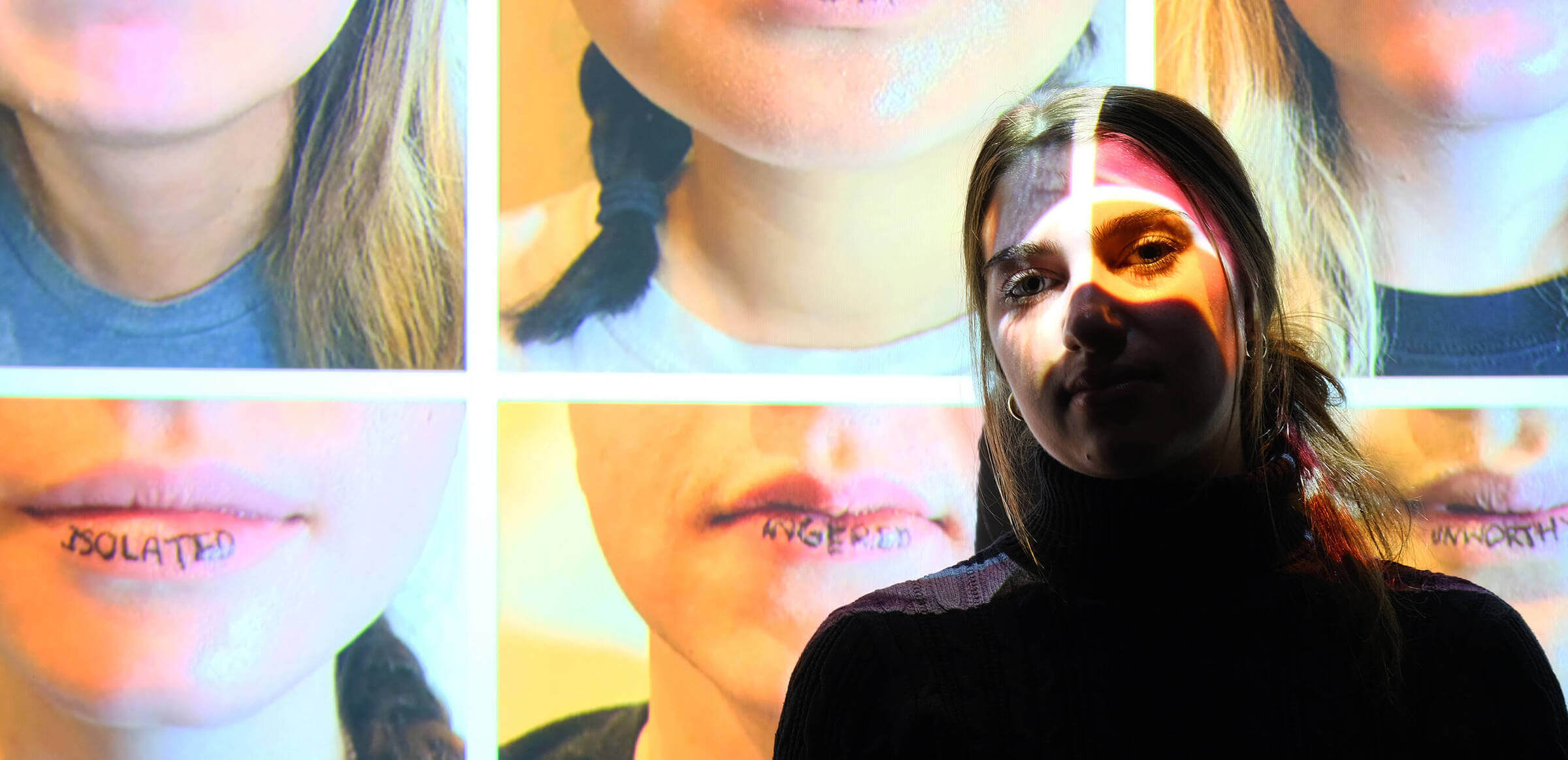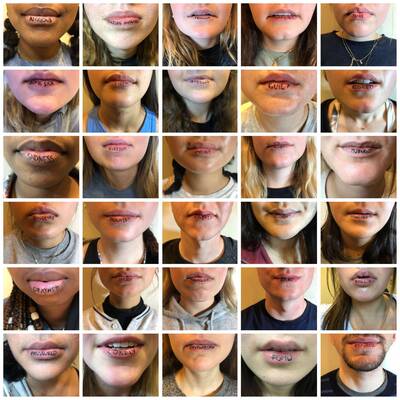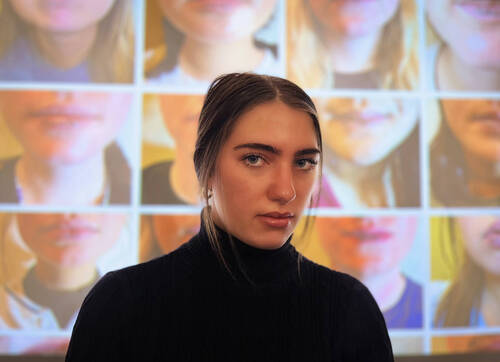'Read My Lips': Student Wellbeing Abroad

JUNIOR LAUREN LEIDINIX arrived in London for her fall semester with an image of Study Abroad delivered to her, like many of her peers, by social media: museums, theaters, trips to Europe, Christmas markets on the Thames. What she found, however, was that in addition to all the spectacular things London has to offer, there is another side of Study Abroad often left undiscussed.
“Before you go on Study Abroad, you think, wow, this is going to be incredible,” Lauren recalls, “and then throughout the semester you’re constantly seeing people's social media posts and stories…there's this pressure to have such an amazing experience that you feel bad about vocalizing if you're not having a great time. Or if you see other people having a great time and you're not, you're like, am I doing Study Abroad wrong?”
For some social media is entertainment, for others it is business, for still others it is a tool of procrastination. What social media undoubtedly does for us all, however, is warp our perspective of others and their experiences. To address this disparity between Study Abroad’s online persona and its reality, Lauren turned to the same tool often used by influencers: photography.

Professor Lois Oliver’s course London as Art Capital challenges students to engage with London as a hub of contemporary art and identify what inspires art in our current moment. For their final projects students choose from one of three options: to either Be an Artist, Be a Curator, or Be A Consultant. Prof. Oliver admires that “students choosing to ‘Be an Artist’ are expected to present a concept [for a piece of art] only, but Lauren has created the actual piece, in an outstanding collaboration with her peers.”
Lauren’s artwork Read My Lips (right) is a photography project featuring a collection of often-stigmatized emotions written in ink across the mouths of thirty classmates. How did she do it? “I just wrote it on their lips with eyeliner,” Lauren laughs. Though the process sounds light, the final piece is striking. Maybe it’s the size, maybe it’s the fact that the emotions written on the students’ mouths are their own.
“It was just a really beautiful experience talking to people about why they chose the word they chose or how they've been feeling,” Lauren says. “The more I talked, the more I realized that this is a commonality we shared…I think there's strength in sharing and getting support from a community.”
You might look at the piece and notice that most of the emotions are negative—“culture shocked” “homesick” “overwhelmed”—but that’s by design: the positive is written all over the place.
“That's why I wanted to do the lip shot,” Lauren says, "if your lips could speak for themselves, what would they say?"
Lauren rightfully points out that “it's so easy to just see the highlight reels and be so fixated on having this perfect image of Study Abroad…Read My Lips plays on how you're not going to vocalize [the negative things] you're feeling, but you almost feel like someone could just read your lips and know.”
Why are these pressures so often kept below the surface? Lauren interviewed other London students to find out what they had been feeling during the semester that they hadn’t been comfortable expressing, and why. “There’s a fear of sounding ungrateful,” she discovered, “because we are blessed with an amazing experience. And so you feel bad saying ‘this is hard,’ or ‘this is challenging,’ or ‘this is a culture shock and I'm not having a great time’. I know for me, [it was] a really hard part to overcome.”

And no wonder undergraduates are hesitant to disclose what they’re struggling with—until recently it has been widely stigmatized to speak about mental health at all, never mind during a once-in-a-lifetime semester abroad. “That's why I wanted to do the lip shot,” Lauren says, “if your lips could speak for themselves, what would they say?”
What does Lauren hope Study Abroad students, both past and future, take away from her art piece?
“My hope going forward [is] to bring awareness that everybody's feeling these feelings. Everyone's struggling with finding friendships, feeling lonely, feeling isolated, feeling overwhelmed.” Lauren has observed that studying abroad can feel like starting over for some, away from the comfort of dorm-mates, campus buildings and the dining hall. To be able to embrace another city as home for the semester, “the important part is to talk about it, to acknowledge it, to not feel bad for feeling that way…I think that seeing Read My Lips gives people a license to feel that way.”
Lauren’s advice for incoming Study Abroad students is to “just be easy on yourself. Know that you'll adapt with time, and take time to take care of yourself.”
Read My Lips isn’t a record of students facing challenges abroad: it’s a way to de-stigmatize the conversation around wellbeing, to come together as a community, to tell students who are yet to Study Abroad to take the leap. Even if they stumble, they'll have someone to catch them.
Responses have been modified for clarity.